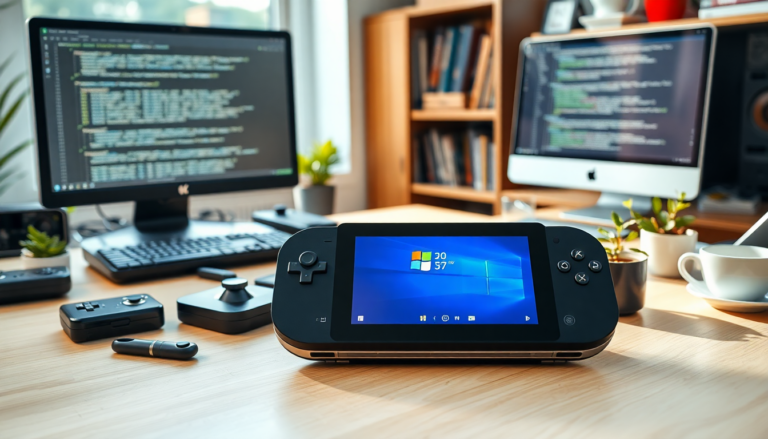Argomenti trattati
Have you ever wondered how vintage operating systems can coexist with today’s cutting-edge gaming hardware? The recent attempts to run Windows 7 on the Steam Deck are a fascinating case in point. This exploration not only reveals the capabilities of this handheld device but also highlights the challenges of integrating older software with modern technology. As the gaming landscape evolves, the desire to revisit and interact with past systems sparks both curiosity and technical exploration.
The Challenge of Compatibility
Windows 7, launched in 2009, marked a turning point in computing history. Yet, its compatibility with the Steam Deck—a device that debuted over a decade later—raises some intriguing questions about performance and usability. Tech enthusiast Bob Pony recently took to social media to share his insights, revealing that while Windows 7 can run on the Steam Deck, the experience isn’t exactly smooth sailing. For instance, users might find themselves stuck in portrait mode due to display issues, illustrating the technical hurdles encountered when trying to merge such disparate technologies.
Adding to the complexity is the architecture of the Steam Deck, which is powered by AMD’s Van Gogh APU. While the CPU manages to handle the operating system reasonably well, the custom graphics drivers built for Windows 10 and 11 present significant obstacles for those trying to run Windows 7. This mismatch underscores the difficulties of running legacy systems on hardware that wasn’t designed with them in mind. Isn’t it curious how technology can sometimes seem to move forward while leaving the past behind?
Pony humorously mentioned the idea of running even older versions of Windows, like XP or the obscure Temple OS, among tech enthusiasts. But just how practical are those ideas? The need for suitable drivers and compatibility layers complicates this retro computing venture, leaving many to wonder if it’s worth the trouble.
The Future of Retro Operating Systems on Modern Hardware
The eagerness to run Windows 7 and similar operating systems on the Steam Deck reflects a broader trend within the tech community: a desire to revive and engage with the past. Each attempt to integrate these older systems provides valuable insights into the architectures of both vintage hardware and software. Have you felt that nostalgia for older operating systems? It’s palpable, especially as we transition into the era of retro computing.
As Windows 7 edges closer to becoming a relic, its relevance may diminish, but it still captivates hobbyists eager to push the boundaries of what modern devices can achieve. Rumors about the compatibility of Windows Vista only hint at a growing community excited to explore these possibilities. Will we see more successful integrations in the future?
However, it’s essential to recognize the limitations. The technical challenges of running Windows 7 on the Steam Deck—like configuring display settings properly—highlight the importance of understanding both hardware capabilities and software requirements. Without adequate support from drivers and system updates, users may end up with more frustration than satisfaction. Isn’t it ironic how our desire to innovate can sometimes lead us down a challenging path?
Conclusion: A Glimpse into the Future
As we gaze into the future, the compatibility of older operating systems with modern devices presents both challenges and exciting opportunities. The journey of running Windows 7 on the Steam Deck is just one of many explorations in this captivating space. With a community of tech enthusiasts and developers eager to bridge the gap between past and present, we might witness more successful integrations ahead.
Ultimately, the pursuit of retro computing on contemporary platforms reflects a broader curiosity about technology’s evolution. As we continue to experiment with these combinations, the potential for innovation and discovery remains immense. For now, the experience of Windows 7 on the Steam Deck serves as a reminder of the complexities in our tech landscape—a blend of nostalgia and modernity that invites us to explore further. What might the future hold for retro computing? Only time will tell!

